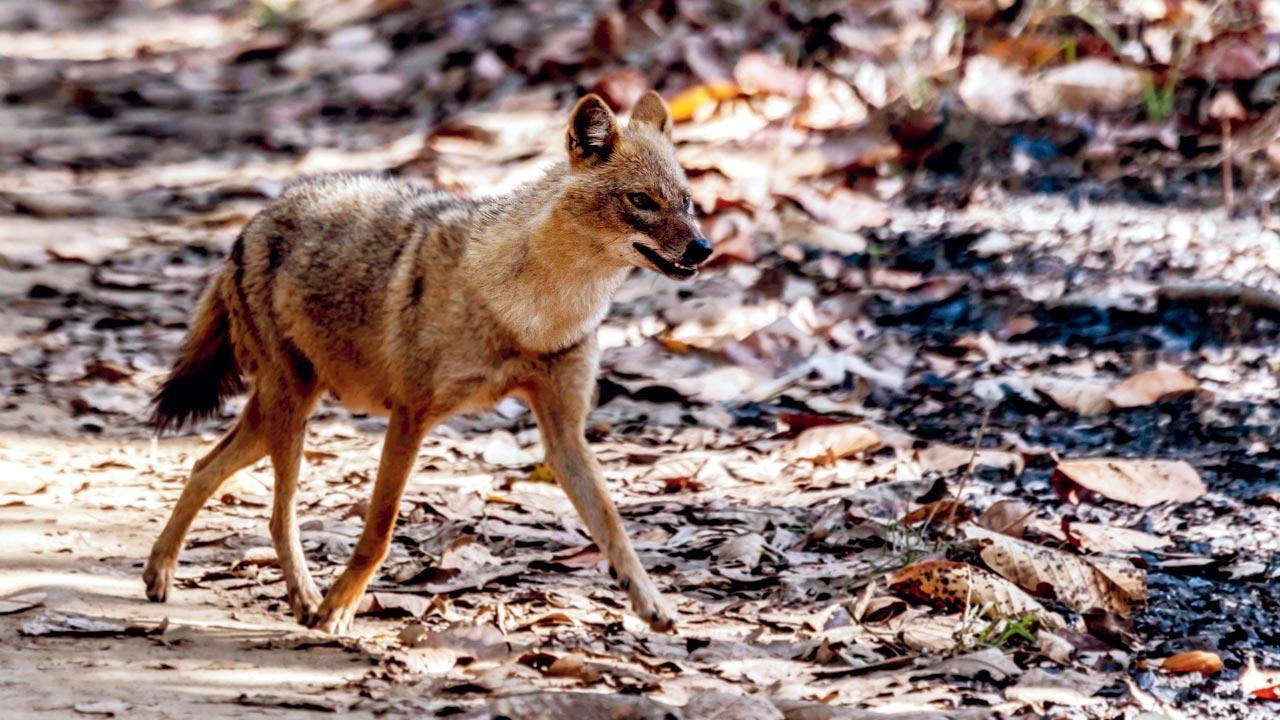Officials said that the teams will monitor whether the rabies transmission was spread from dogs or from other jackals. Samples have been sent to the ICMR-National Institute of Virology for analysis, and the reporters are awaited, they said

The jackal exhibited behaviours of rabies infection. Representation pic
The forest department has established a committee to determine the cause of jackal deaths in the Mumbai Metropolitan Region (MMR). The committee has also been told to administer anti-rabies vaccines to all its members and staff.
ADVERTISEMENT
Several golden jackals in the MMR were found dead in the past few months, with the major cause of deaths being rabies infection. In a recent incident which took place last week, a golden jackal was rescued from the Chembur area. However, it was declared dead within two days of its rescue with signs of being infected with rabies.
Officials said that the teams will monitor whether the rabies transmission was spread from dogs or from other jackals. Samples have been sent to the ICMR-National Institute of Virology for analysis, and the reporters are awaited, they said.
“We have formed monitoring groups that include field staff, with the priority being the administration of anti-rabies vaccines to the group members. The team has been briefed on the dos and don’ts, as well as the protocols for monitoring jackals in the identified hotspots,” said Deputy Conservator of Forest (DCF) Akshay Gajbhiye, who is also heading the committee.
The forest department said that it would also be doing habitat mapping of the areas where the number of golden jackals is high. In order to monitor the movement of the golden jackal, a camera trapping study will be undertaken. The six-member committee, which also includes field staff, is composed of a wildlife veterinarian, senior forest department officials, and a representative from a wildlife conservation NGO.
On October 28, mid-day did a story—‘Forest dept to investigate the rise in jackal deaths in Chembur’—which highlighted how, in a concerning series of events, five jackals had died in the Trombay-Chembur belt over the past month, prompting investigations by the forest department. While the reason behind their deaths is unknown, sources from the forest department told mid-day that the sick jackals that were rescued showed behaviours indicative of a potential rabies infection.
On October 30, mid-day carried another story—’Rabies may be cause of jackal deaths’—in which it was stated that the jackal that died recently in Mumbai tested positive for rabies infection, making this incident probably the first case of a rabies-infected death of wildlife in Mumbai.
 Subscribe today by clicking the link and stay updated with the latest news!" Click here!
Subscribe today by clicking the link and stay updated with the latest news!" Click here!







